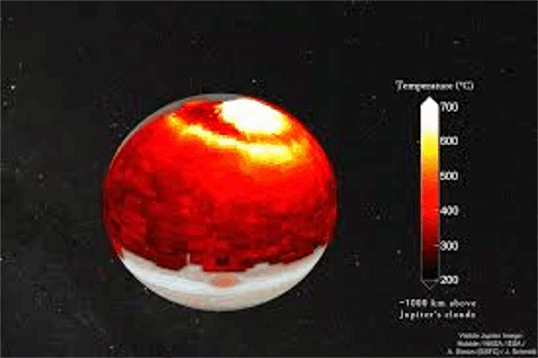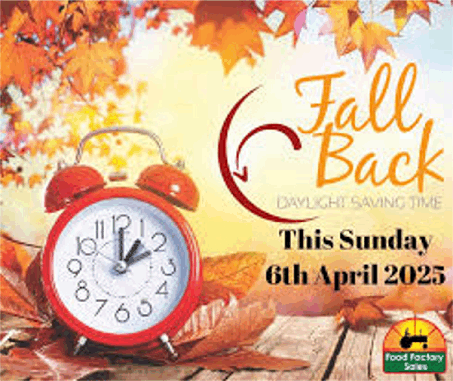별을 바라보고 밤하늘을 바라보는 것이 어떻게 정신 건강과 웰빙을 향상시키는가
ABC 건강 및 웰빙 /
제임스 불렌(James Bullen)의 All in the Mind
1시간 전1시간 전에 게시됨
큰 언덕/산 너머 밤하늘에 보이는 녹청색 오로라 보레알리스
아이슬란드의 키르큐펠(Kirkjufell) 상공에서 본 오로라 보레알리스는 경이로움을 자아냅니다.(Unsplash: Joshua Earle)
춤추는 북극광 아래에서 Heather Allansdottir는 마침내 평화를 느꼈습니다.
때는 2019년이었습니다. 그녀는 2010년대 아랍 혁명의 언론인이자 법학자로 일하며 힘든 10년을 보내기 위해 영국을 떠나 아이슬란드로 갔습니다.
그러나 그녀의 마음이 고요해진 것은 오로라 아래에 있는 자신을 발견하고 나서부터였습니다.
듣다
지속 시간: 29분 9초29m
밤하늘과의 깊은 연결은 정신 건강에 놀라운 일을 할 수 있습니다. All In The Mind의 전체 에피소드를 들어보세요.
Allansdottir 박사는 “기적을 목격한 것 같은 느낌이 들었습니다”라고 말했습니다.
“드디어 내 모든 불안이 완화되었습니다.”
Allansdottir 박사도 그녀의 경험에 혼자가 아닙니다. ABC RN의 All in the Mind 팟캐스트에서 우리는 별빛 아래로 나가면 기분이 좋아지는 것을 경험한 많은 사람들과 이야기를 나눴습니다.
그런데 별을 관찰하는 것이 왜 당신의 웰빙을 향상시킬까요?
밤까지의 연결 측정
Chris Barnes는 영국 더비 대학교의 학술 심리학자로서 자연 연결성, 즉 인간이 자연에 대해 느끼는 연결과 그것이 우리에게 어떻게 도움이 될 수 있는지를 연구하고 있습니다.
천문학과 밤하늘에 대한 열정적인 관심을 갖고 있는 Barnes 박사는 일부 사람들이 낮에 자연과 느끼는 연결이 밤에도 존재할 수 있는지 궁금해했습니다.
그러나 기존의 과학 문헌을 검토한 결과 만족스럽지 못하자 그는 직접 연구를 해 보기로 결정했습니다.
나무 끝이나 전경에 보이는 숲과 함께 별이 가득한 하늘
밤하늘 아래에 있는 것은 어떤 느낌을 주나요?(Unsplash: Dario Brönnimann)
“나는 밤에 인간과 자연계의 관계에 대해 이야기하는 연구가 거의 없다는 것을 발견했습니다.”라고 그는 말합니다.
“그것이 밤하늘이고 그것이 무엇을 제공하는지, 또한 빛 공해가 사람들과 밤하늘의 연결에 미치는 영향도 마찬가지입니다.”
그래서 그는 우리가 밤하늘과 얼마나 연결되어 있는지를 정량화할 수 있는 측정법인 밤하늘 연결성 지수(Night Sky Connectedness Index)를 개발하기 시작했습니다.
오로라부터 금성까지, 밤하늘에서 당신을 놀라게 하는 것이 무엇인지 알고 싶습니다.
이제 호주에 중요한 질문을 던져야 할 때입니다. 밤하늘에서 우리를 경외감으로 가득 채운 것은 무엇입니까?
산악 사막 풍경 위에 떠 있는 폭풍 구름 위의 어두운 별이 빛나는 하늘에 붉은 줄무늬가 보입니다.
더 읽어보세요
이는 12개 항목으로 구성된 테스트이며, 각 항목은 “나는 밤하늘에서 아름다움을 찾습니다” 또는 “밤하늘 아래에서 편안함을 느낍니다”와 같은 진술로 이루어져 있습니다.
사람들은 얼마나 동의하는지, 반대하는지에 따라 응답하고 해당 답변에 따라 점수가 매겨집니다.
가장 낮은 점수는 0으로 밤하늘과의 연결이 없음을 의미하며, 가장 높은 점수인 120은 매우 강한 연결을 의미합니다.
Barnes 박사는 400명 이상의 사람들을 대상으로 밤하늘의 연결성을 측정하는 방법을 테스트했습니다.
그는 또한 이전 연구에서 엄격하게 개발된 행복, 탄력성 및 정신 건강 측정에 대한 테스트를 제공했습니다.
두 부모와 어린 아이가 별이 빛나는 하늘을 바라보고 있습니다.
어둡고 맑은 하늘과 함께 별이 빛나는 밤이 생생하게 살아납니다.(제공: Alice Wang 및 Barry Williams @Nebulous_nights)
밤하늘과의 연관성이 더 강하다고 보고한 사람들은 정신 건강과 행복 척도에서 더 좋은 점수를 받았다고 Barnes 박사는 말합니다.
“누군가가 밤에 자연 환경에 대한 연결이 높을수록 그들은 더 행복감을 느끼고 더 긍정적인 전망과 더 긍정적인 웰빙을 가졌습니다.”
이번 연구 결과는 올해 초에 발표되었으며, 이는 과학 연구의 새로운 영역이지만 영국과 미국 연구자들의 2014년 연구와 같은 이전 연구도 연관성을 뒷받침합니다.
별을 관찰하면 웰빙이 향상되는 이유는 무엇입니까?
우리는 별 관찰이 웰빙을 향상시키는 방법과 이유를 정확히 알지 못합니다.
Barnes 박사는 사람들이 별을 바라볼 때 경험하는 마음챙김과 하늘을 바라볼 때 느끼는 감정적 반응이 결합된 것일 수 있다고 말합니다.
기본적으로, 하늘을 바라볼 때 그 순간에 있고 경외심을 경험할 수 있는 기회입니다.
Allansdottir 박사는 아이슬란드의 오로라 아래에서 바로 그러한 경외감과 평화를 발견했으며 현재는 정기적으로 별을 관찰하고 있습니다.
한 여성(헤더 앨런스도티르)이 양쪽에 책이 가득한 안락의자에 앉아 있습니다.
Heather Allansdottir는 별을 바라보는 것이 그녀의 불안을 완화시킨다는 것을 발견했습니다.(제공)
“사람들이 순간에 머물거나 고정되어 있거나 고정되어 있거나 현재에 있다고 말할 때 이것이 바로 사람들이 말하는 것입니다. 왜냐하면 제가 별을 보러 갈 때 실제로 그런 느낌이 들기 때문입니다.”라고 그녀는 말합니다.
“저에게 별 관찰은 명상적인 경험입니다.”
별빛 아래에서 보내는 시간은 혈압 감소, 보고된 스트레스 및 코티솔 수치 감소 등 낮 동안 자연에서 시간을 보내는 것과 유사한 생리학적 효과를 가질 수 있다고 Barnes 박사는 말합니다.
“그래서 우리는 실제로 p의 상태에 들어갑니다
우리에게 좋은 생리적 이완.
“우리가 그런 종류의 일을 더 많이 할수록 우리는 이러한 웰빙 혜택을 볼 가능성이 더 커집니다.”
보라색으로 빛나는 은하수가 있는 밤하늘의 풍경.
별빛 아래에서 시간을 보내는 것은 자연 속에 있는 또 다른 방법입니다.(제공: Alice Wang 및 Barry Williams @Nebulous_nights)
빛공해와 연관된 연관성
웰빙 협회와 함께 Barnes 박사는 누군가가 밤하늘에 대한 연결감을 느끼는 정도와 해당 지역의 빛 공해 수준 사이에 연관성이 있는지 조사했습니다.
각 연구 참가자의 우편번호가 기록되어 그 사람이 노출된 빛 공해 수준을 나타내는 지표로 사용되었습니다.
시드니 하버 브리지, 오페라 하우스, 도시 경관의 밝은 빛이 밤을 가릴 정도로 옅은 안개를 만들어냅니다.
도시의 인공 조명은 이곳 시드니에서 볼 수 있듯이 밤하늘의 선명한 시야를 가리는 빛 공해의 원인입니다.(Flickr: Harbourview 2, J c, CC BY 2.0)
연구원들이 밤하늘 연결성 지수(Night Sky Connectedness Index)와 비교하여 해당 데이터를 분석했을 때, 빛 공해가 높은 우편번호에 거주하는 사람들은 일반적으로 지수 점수가 낮아 밤하늘과의 연결성이 덜하다는 느낌을 받았다는 사실을 발견했습니다.
“아마도 이는 놀라운 발견은 아닐 것입니다”라고 Barnes 박사는 말했습니다.
“그러나 우리는 사람이 반드시 알 수 없는 빛 공해 심각도와 새로운 측정에 따라 평가하고 점수를 매길 수 있는 연결성 수준 사이의 연관성을 처음으로 테스트할 수 있었습니다.”
외딴 곳에서 도심까지, 빛 공해로 인해 시야에서 사라지는 은하수를 감상하세요.
세계 대부분의 사람들은 빛 오염된 하늘 아래 살고 있습니다. 우리의 인터랙티브는 간단한 변화만으로도 어떻게 별을 다시 볼 수 있는지 보여줍니다.
도시 풍경 위에 은하수는 밤하늘을 가로지르는 분홍빛 별 무리로 나타납니다.
더 읽어보세요
과학자들은 약 80%의 사람들이 빛으로 오염된 하늘 아래 살고 있다고 추정합니다. 은하수는 더 이상 우리 중 3분의 1에게 보이지 않습니다.
호주 국토의 대부분은 빛 오염의 영향을 받지 않지만, 도시에 인구가 집중되어 있다는 것은 호주가 전 세계적으로 1인당 빛 오염 비율이 가장 높은 국가 중 하나임을 의미합니다.
Allansdottir 박사는 법학계에서 자신이 연구하고 있는 분야인 빛 공해와 우주 쓰레기가 우리 시대의 핵심 문제라고 말합니다.
“나는 그것이 정치적 의제에 더 많이 포함되었으면 좋겠다. 그리고 그것이 주류 정치인들에 의해 논의되는 곳으로 우리가 전환하기를 바란다”고 그녀는 말했다.
마음, 뇌, 행동에 관한 더 많은 이야기를 보려면 전체 에피소드를 듣고 All in the Mind 팟캐스트를 구독하세요.
받은 편지함의 정신 건강
월간 뉴스레터를 구독하여 ABC 전체에서 최고의 정신 건강 콘텐츠를 선택해 보세요.
귀하의 정보는 ABC 개인정보 수집 정책에 따라 처리됩니다.
이 사이트는 reCAPTCHA로 보호되며 Google 개인정보 보호정책 및 서비스 약관이 적용됩니다.
이메일 주소
ozilbo07@gmail.com
구독하다
1시간 전 게시됨
How stargazing and looking to the night sky boosts mental health and wellbeing
/
by James Bullen for All in the Mind
Posted 1h ago1 hours ago
abc.net.au/news/stargazing-and-mental-health-night-sky-can-boost-your-wellbeing/104177006Copy link
Link copiedShare article
Under the dancing lights of the aurora borealis, Heather Allansdottir finally felt at peace.
It was 2019. She’d left the UK for Iceland in a bid to put behind a tough decade working as a journalist and legal scholar of the Arab revolutions in the 2010s.
But it wasn’t until she found herself beneath the aurora that her mind stilled.
“I felt like I’d witnessed a miracle,” Dr Allansdottir says.
“Finally, it eased all of my anxiety.”
Dr Allansdottir isn’t alone in her experience, either. For the ABC RN’s All in the Mind podcast, we spoke to a number of people who experienced a lift in mood when they got out under the stars.
But why would stargazing boost your wellbeing at all?
Measuring connection to the night
Chris Barnes is an academic psychologist at the University of Derby in the UK studying nature connectedness — the links humans feel to nature and how that may benefit us.
With a passionate interest in astronomy and the night sky, Dr Barnes wondered whether the connection felt by some people to nature in the day would also exist for the night.
But when reviewing the existing scientific literature left him unsatisfied, he decided to do some research himself.
“I’d discovered that there was very little in terms of the research that was talking about people’s connection to the natural world at night,” he says.
“Whether that be the night sky and what it has to offer, but also the impact that light pollution has upon people’s connection to the night sky.”
So he set out to develop a measure that could quantify how connected we feel to the night sky, aptly named the Night Sky Connectedness Index.
From auroras to Venus, we want to know what in the night sky amazes you
It’s time to ask Australia an important question: What’s filled us with awe in the night sky?
It’s a 12-item test, with each item being a statement such as “I find beauty in the night sky” or “I feel at home under the night sky”.
People respond with how much they agree or disagree, and are scored based on those answers.
The lowest score is zero, meaning no connection to the night sky, and the highest score of 120 signifies a very strong connection.
Dr Barnes tested this measure of night sky connectedness on more than 400 people.
He also gave them tests rigorously developed in previous studies: measures of happiness, resilience and mental wellbeing.
Those that reported a stronger connection to the night sky scored better on mental health and happiness scales, Dr Barnes says.
“The higher the connection that someone had to the natural environment at night, they felt happier and had a more positive outlook and a more positive wellbeing.”
The findings were published earlier this year, and while this is an emerging area of scientific research, previous work — such as a 2014 study by British and American researchers — also supports a connection.
Why does stargazing boost wellbeing?
We don’t yet know exactly how or why stargazing appears to boost wellbeing.
Dr Barnes says it could be a combination of the mindfulness people experience while stargazing and the emotional response some feel when looking to the heavens.
Basically, the opportunity to be in the moment and experience awe when gazing skywards.
Dr Allansdottir found precisely that sense of awe and peace under the aurora in Iceland, and now stargazes regularly.
“This is what people are talking about when they say being in the moment or being anchored or being grounded or being present, because when I go stargazing, that’s how I actually feel,” she says.
“For me, stargazing is a meditative experience.”
Time spent under the stars may have physiological effects similar to spending time in nature during the day, including decreases in blood pressure, reported stress and cortisol levels, Dr Barnes suggests.
“So we really enter this state of physiological relaxation which is good for us.
“The more we do those kind of things, the more likely we are to see these wellbeing benefits.”
Connection linked to light pollution
Along with the wellbeing associations, Dr Barnes also investigated whether there was a link between how connected someone felt to the night sky and the level of light pollution in their area.
Each study participant’s postal or zip code was recorded and used as a proxy for the level of light pollution that person was exposed to.
When the researchers analysed that data against the Night Sky Connectedness Index, they found that those who lived in postcodes with higher light pollution typically had lower index scores, suggesting they felt less connected to the night sky.
“Perhaps that’s not a surprising finding,” Dr Barnes says.
“But we were able to test for the first time this link between light pollution severity, which a person wouldn’t necessarily know, with the level of connectedness that we’re able to rate and score according to our new measure.”
From remote to inner city, watch the Milky Way fade from sight due to light pollution
Scientists estimate around 80 per cent of people live under light-polluted skies. The Milky Way is no longer visible to a third of us.
And though much of Australia’s land mass isn’t affected by light pollution, the concentration of people in our cities means the country has one of the highest rates of light pollution per person globally.
Dr Allansdottir says light pollution and space junk, an area she works on as a legal academic, are key issues of our time.
“I do wish that that was more on the political agenda. And I hope that we do shift to a place where that is something being discussed by mainstream politicians,” she says.
Listen to the full episode and subscribe to the All in the Mind podcast for more stories about the mind, brain and behaviour.
Mental health in your inbox
Get a selection of the best mental health content from across the ABC by subscribing to our monthly newsletter
Your information is being handled in accordance with the ABC Privacy Collection Statement.
This site is protected by reCAPTCHA and the Google Privacy Policy and Terms of Service apply.
Posted 1h ago










